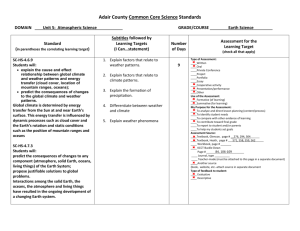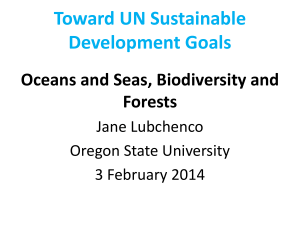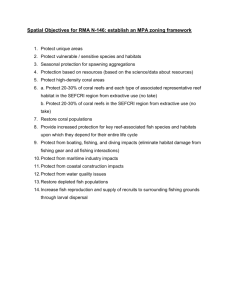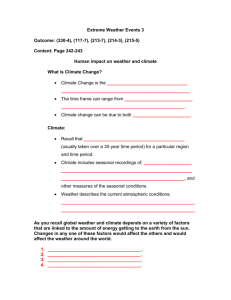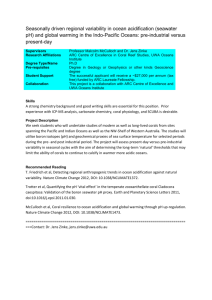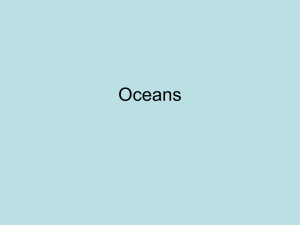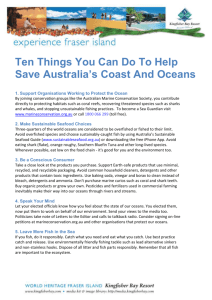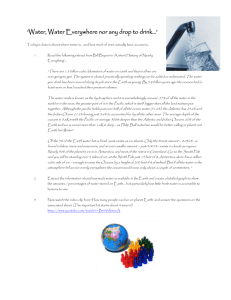File - The Geographer online
advertisement
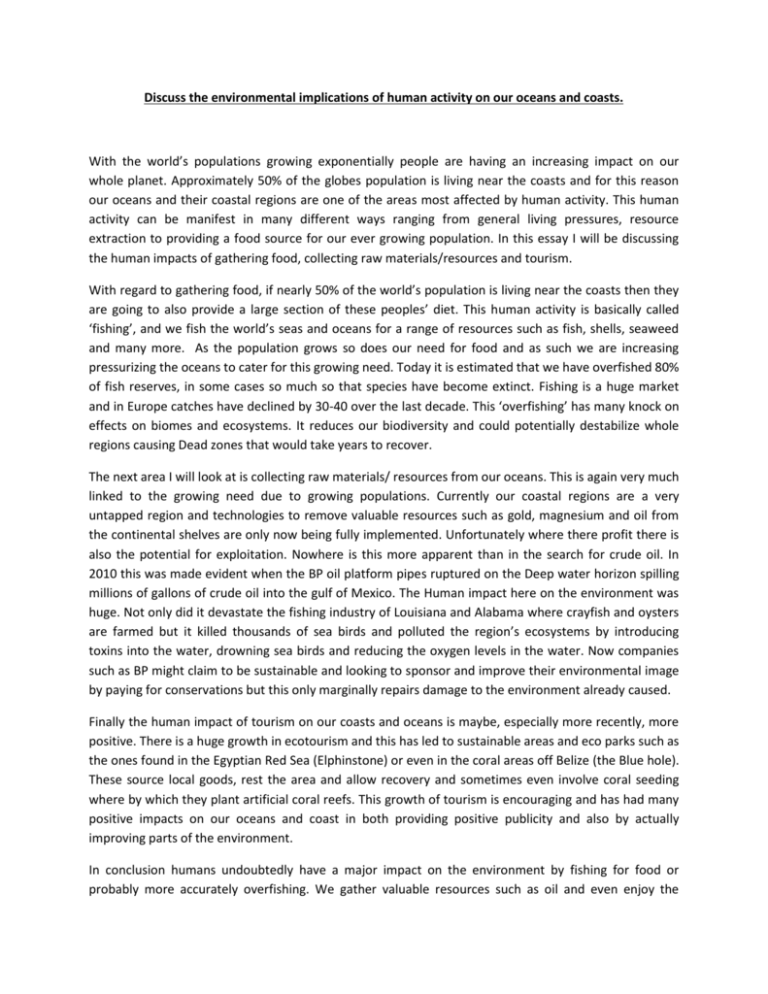
Discuss the environmental implications of human activity on our oceans and coasts. With the world’s populations growing exponentially people are having an increasing impact on our whole planet. Approximately 50% of the globes population is living near the coasts and for this reason our oceans and their coastal regions are one of the areas most affected by human activity. This human activity can be manifest in many different ways ranging from general living pressures, resource extraction to providing a food source for our ever growing population. In this essay I will be discussing the human impacts of gathering food, collecting raw materials/resources and tourism. With regard to gathering food, if nearly 50% of the world’s population is living near the coasts then they are going to also provide a large section of these peoples’ diet. This human activity is basically called ‘fishing’, and we fish the world’s seas and oceans for a range of resources such as fish, shells, seaweed and many more. As the population grows so does our need for food and as such we are increasing pressurizing the oceans to cater for this growing need. Today it is estimated that we have overfished 80% of fish reserves, in some cases so much so that species have become extinct. Fishing is a huge market and in Europe catches have declined by 30-40 over the last decade. This ‘overfishing’ has many knock on effects on biomes and ecosystems. It reduces our biodiversity and could potentially destabilize whole regions causing Dead zones that would take years to recover. The next area I will look at is collecting raw materials/ resources from our oceans. This is again very much linked to the growing need due to growing populations. Currently our coastal regions are a very untapped region and technologies to remove valuable resources such as gold, magnesium and oil from the continental shelves are only now being fully implemented. Unfortunately where there profit there is also the potential for exploitation. Nowhere is this more apparent than in the search for crude oil. In 2010 this was made evident when the BP oil platform pipes ruptured on the Deep water horizon spilling millions of gallons of crude oil into the gulf of Mexico. The Human impact here on the environment was huge. Not only did it devastate the fishing industry of Louisiana and Alabama where crayfish and oysters are farmed but it killed thousands of sea birds and polluted the region’s ecosystems by introducing toxins into the water, drowning sea birds and reducing the oxygen levels in the water. Now companies such as BP might claim to be sustainable and looking to sponsor and improve their environmental image by paying for conservations but this only marginally repairs damage to the environment already caused. Finally the human impact of tourism on our coasts and oceans is maybe, especially more recently, more positive. There is a huge growth in ecotourism and this has led to sustainable areas and eco parks such as the ones found in the Egyptian Red Sea (Elphinstone) or even in the coral areas off Belize (the Blue hole). These source local goods, rest the area and allow recovery and sometimes even involve coral seeding where by which they plant artificial coral reefs. This growth of tourism is encouraging and has had many positive impacts on our oceans and coast in both providing positive publicity and also by actually improving parts of the environment. In conclusion humans undoubtedly have a major impact on the environment by fishing for food or probably more accurately overfishing. We gather valuable resources such as oil and even enjoy the environment as with tourism. In my opinion the majority of evidence tends to indicate when people pursue most types of activities in our oceans and coast they tend to cause negative environmental implications; Oil spills, over fishing, trash and pollutants. Not all are negative however as ecotourism would tend to support. However, even with eco-tourism it is possible by our very presence to cause damage and even if we ignore that we are at most repairing previous negative environmental impacts rather than improving on nature.
